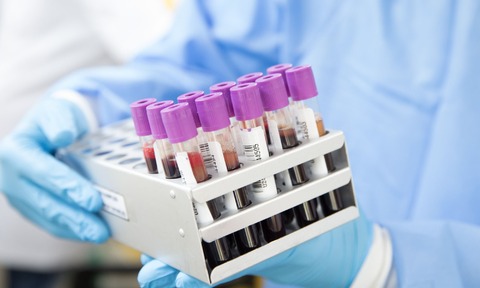Lab roundup: Oxford Nanopore, Protas, CN Bio, Genomics England, Antiverse and more…
1 Mar 2023

Clinical stage biopharmaceutical company Aurum Biosciences has been awarded an Innovation Passport for its lead product ABL-101 stroke technology by the UK Innovative Licensing and Access Pathway (ILAP).
Qualifying medicines must target life-threatening or seriously debilitating conditions, or else address areas of significant patient or public health need. Aurum Bioscience intends its product will improve the lives of patients suffering from acute ischaemic stroke – the leading global cause of disability and the second leading cause of death. The firm, a 2015 spinout company of InnoScot Health, NHS Greater Glasgow and Clyde, and the University of Glasgow, was awarded its Innovation Passport by the ILAP steering group which includes the Medicines and Healthcare products Regulatory Agency (MHRA), National Institute for Health and Care Excellence (NICE), and the Scottish Medicines Consortium (SMC).
The Tecan Group and Oxford Nanopore Technologies are collaborating to create automated, seamless and fully compatible nanopore sequencing library preparation for any-length fragments of native DNA/RNA harnessing Oxford Nanopore’s Ligation Sequencing Kit XL V14 protocol (LSK114) with Tecan’s DreamPrep NGS solutions. The LSK114 protocol allows for any fragment length of DNA to be sequenced, ranging from cell-free DNA to amplicons to any length DNA fragments, from 200 base pairs to more than 100kb or even Mb. Traditional sequencing platforms and protocols can only sequence short fragments typically in the range of 300 to 600 base pairs.
Bayer says it is expanding its Nutrient Gap Initiative sustainability program to improve access to both nutritious food and safety net supplementation. The program initially aimed to expand access to essential vitamins and minerals to 50 million people in under-served communities by 2030. Vitamin and mineral deficiencies are highly prevalent in those communities, with women and children being most vulnerable. Deprivation may cause poor immunity, birth defects, reduced work capacity, learning disabilities, fragile health or failure to thrive. “The roots of malnutrition are complex and far from one-size-fits-all, so we’re drawing on competencies from across our company to fight it,” said Heiko Schipper, President of the Consumer Health Division of Bayer AG.
Genomics England is to deploy medical technology from Sectra, allowing it to incorporate NHS imaging data. The Image Exchange Portal system used nationally in the NHS, will also allow it to transport images from participating NHS trusts. Diagnostic imaging data captured in the NHS, including radiology images such as x-rays, CT and MRI scans, and digital pathology images generated by NHS laboratories, can be linked with whole genome sequencing data from Genomics England. Initially, 30 NHS trusts in England are providing data on solid tumours, approximately 250,000 pathology images and 200,000 radiology scans, for 16,000 participants. After this is matched with the genomics data, multi-modal data will be used by researchers to investigate and identify markers for cancer diagnostics and treatments. Information will be kept highly secure with patient identifiable data removed for researchers outside of Genomics England, who will only have access to a Genomics England ID number, the age of the participant, and the name of the NHS site at which data was captured.
Organ-on-a-Chip (OOC) company CN Bio has commercially launched its first Higher Throughput (HT) system the PhysioMimix Single-organ HT System. The company, which designs and manufactures single-and multi-organ microphysiological systems (MPS), intends its new product to overcome adoption barriers limiting the use of predictive human liver models within drug discovery workflows. This would enable use within earlier stages where larger-scale comparative studies that investigate the efficacy, disposition or safety of lead candidate drugs are required.The objective is to combine significantly reduced cost-per-chip with increased run capacity.
Five Alarm Bio (FAB), a drug discovery company focused on novel approaches to anti-aging, says a completed seed investment round, raised more than £0.5 million. Investors participating include Cambridge Angels, Meltwind, o2h Ventures, and SyndicateRoom, as well as other Angel investors, with support from KPMG Acceleris. This was preceded by a £360K Biomedical Catalyst grant from Innovate UK, awarded in early 2022 to develop the technology as a treatment for chronic wounds.
Age-related diseases such as arthritis, sarcopenia and Alzheimer’s Disease are among the leading causes of disability and mortality across the developed world, and a major burden on health funding.
The US Duke Clinical Research Institute and Oxford University Professor Sir Martin Landra-led not-for-profit clinical trials organisation Protas have launched a long-term collaboration to transform research by altering clinical trials are design and delivery.Their joint work will focus on: large randomised clinical trials including for cardiovascular, metabolic, kidney, gastrointestinal, respiratory disease, plus common and emerging infections; increasing trial participant diversity and inclusion; novel trial designs and methods; and developing and advocating the implementation of clinical trial policies to encourage and facilitate high quality randomised trials.
Antiverse Ltd a biotechnology company developing a computational antibody drug discovery platform, announced the successful identification of functional antibody clusters targeting two G-protein-coupled receptors (GPCRs). The antibodies were identified using Antiverse’s proprietary computational antibody drug discovery platform, employing machine learning to model antibody-antigen interactions and design de novo antibodies. The platform identified a diverse set of binders to two structurally distinct GPCRs; following Fluorescence-Activated Cell Sorting (FACS), eight antibodies were identified as human GPCR binders, with seven confirmed as antagonists blocking GPCR activity. An estimated half of prescription drugs target the GPCR family, with linked to GPCRs including diabetes, cardiovascular and psychiatric disorders.
Antiverse also said that it had raised US$3 million funding, which will enable in-house development of the antibodies. New investors included InnoSpark, AngelHub, Kadmos Capital and Tomorrow Scale, plus existing backers Tensor Ventures, Deep Science Ventures, Ed Parkinson and Development Bank of Wales (DBW).
Pic: Ahmad Ardity

